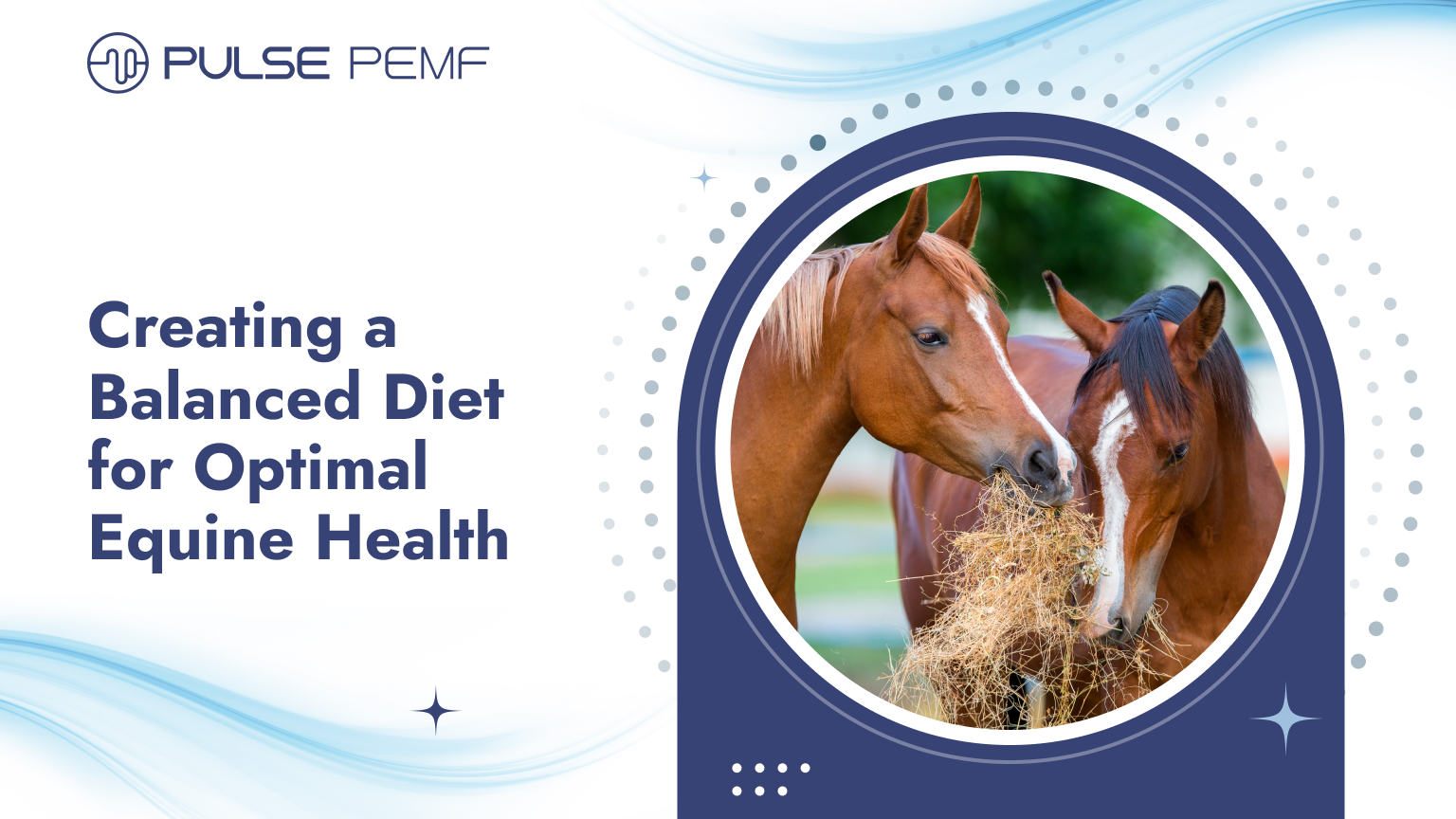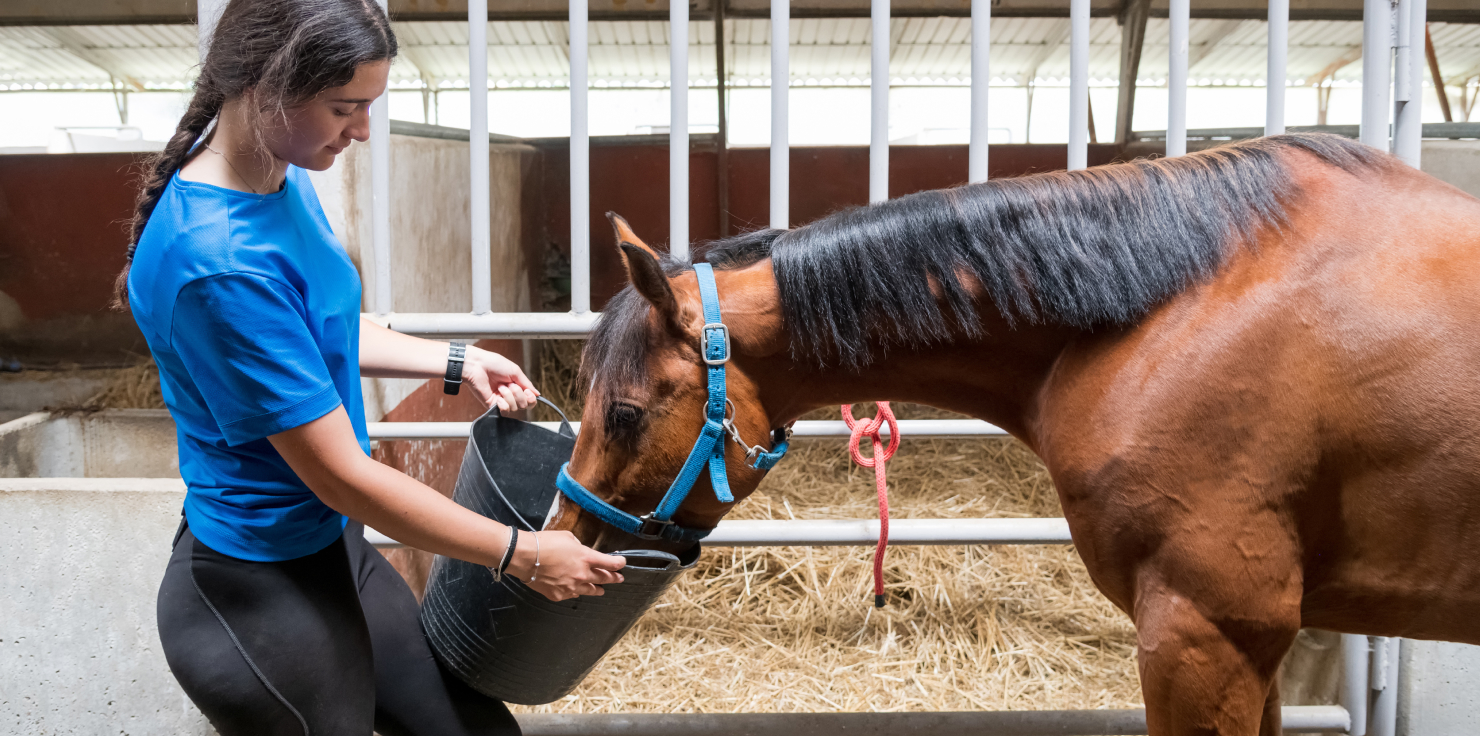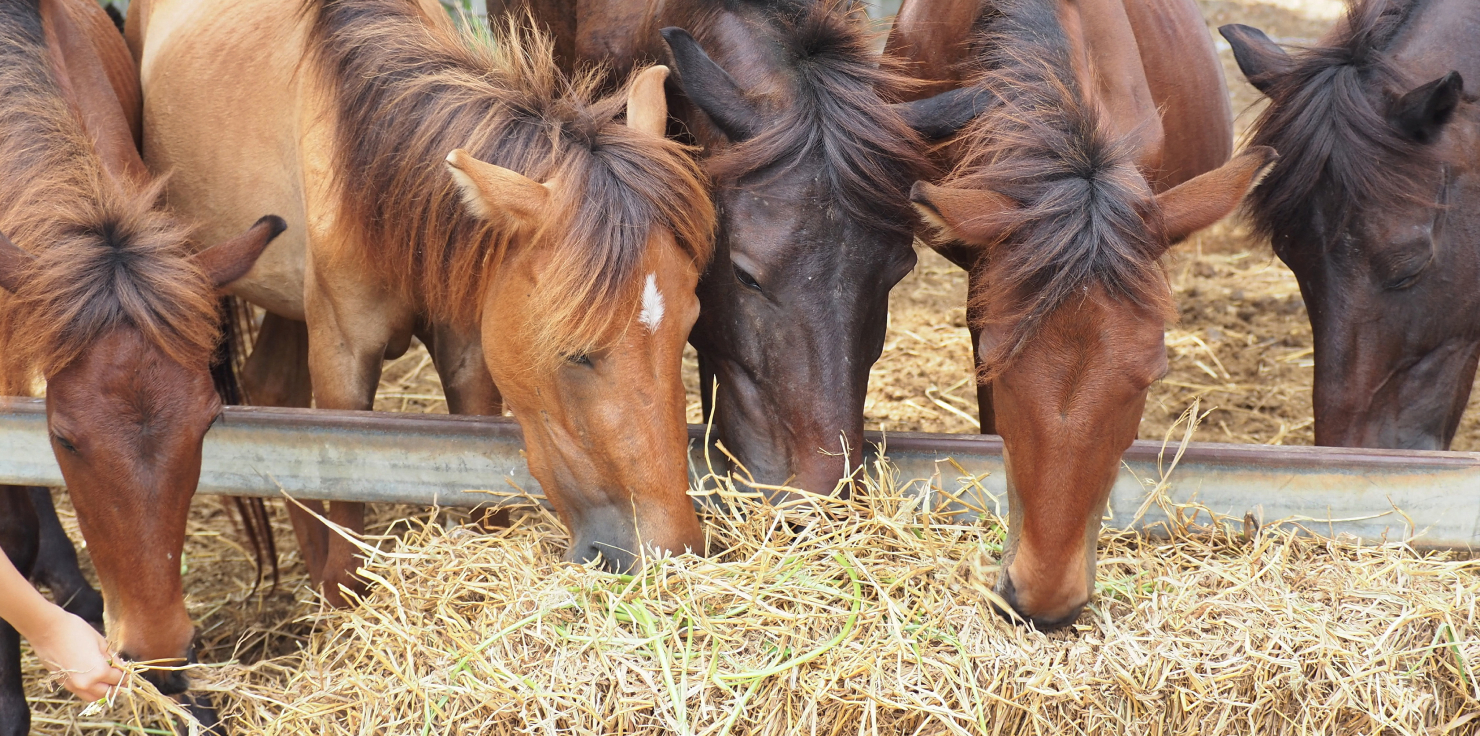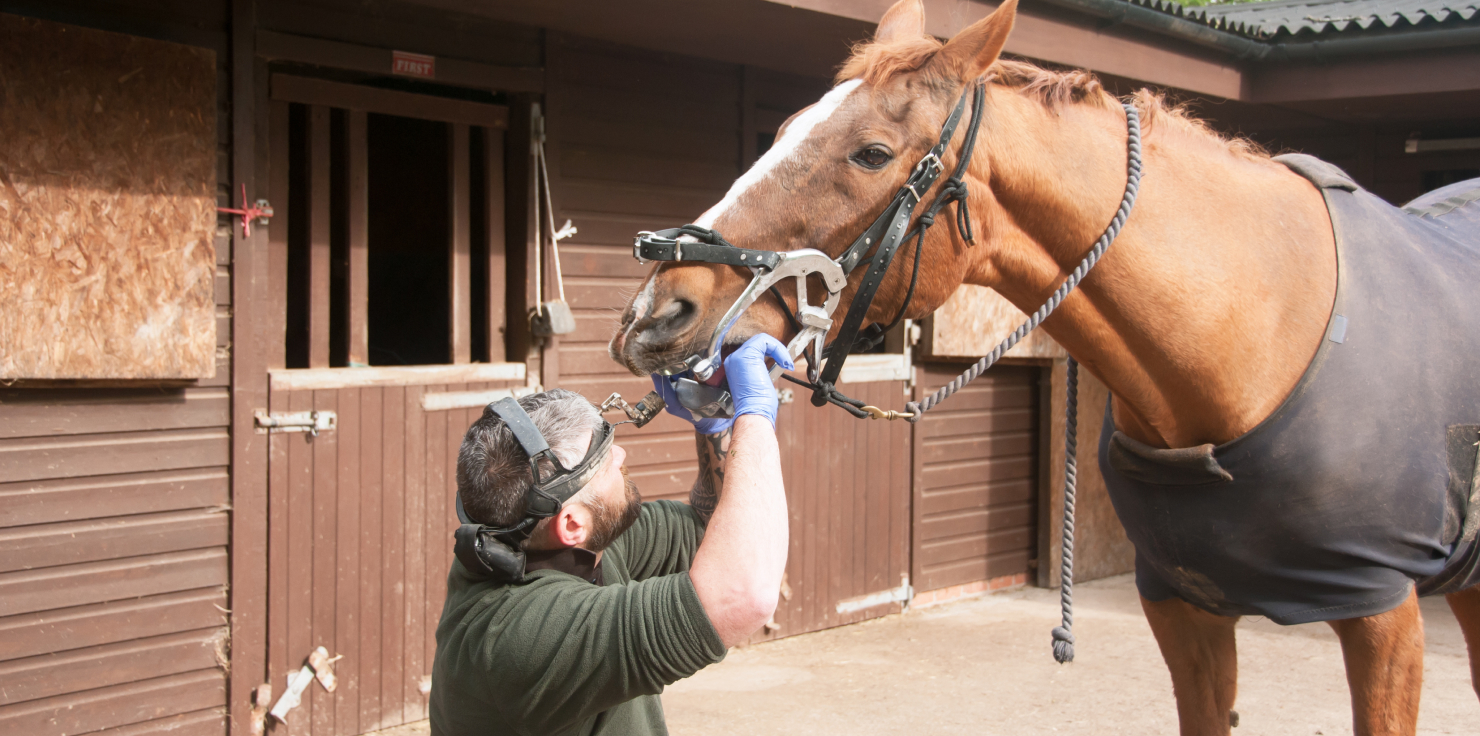A well-balanced diet is crucial for equine health. Horses need to maintain optimal performance and longevity, and proper nutrition provides the essential energy they need to thrive. By ensuring your horse receives the right balance of nutrients, you can support their physical well-being, energy levels, and immune system.
This blog post will guide you through the process of crafting a balanced diet tailored to your horse’s specific needs. Let’s explore the key components of equine health and how to ensure your horse is getting the nutrition they require.
What are the Nutritional Needs of Horses?
Carbohydrates for Energy
Carbohydrates are the primary source of energy for horses, particularly for active or performance horses. They provide the fuel needed for muscles to contract and work efficiently.
Types of Carbohydrates
Hay and pasture are the primary sources of carbohydrates for horses. They provide essential fiber, vitamins, and minerals.
Grains like oats, barley, and corn can also be added to a horse’s diet to provide additional energy. However, it’s important to consult with a veterinarian to determine the appropriate amount.
Protein for Muscle Maintenance
Protein is essential for muscle development, repair, and overall maintenance. It’s particularly important for working horses, growing horses, and pregnant or lactating mares.
Recommended Protein Sources
Alfalfa: Alfalfa is a high-protein forage that can be a valuable addition to a horse’s diet.
Legumes: Soybeans and peas are good sources of plant-based protein.
Protein Supplements: If your horse has specific protein needs, you may need to supplement their diet with a protein supplement.
Fats for Endurance
Fats provide a source of slow-burning energy, making them ideal for horses that need sustained endurance for long-duration activities. Good sources of fats could be flaxseed, rice bran, and corn or soybean oils.
Why Include Fats in the Diet?
Sustained Energy: Fats can help horses maintain energy levels during long rides or competitions.
Healthier Coat: Fats can improve the health and shine of a horse’s coat.
Vitamins and Minerals for Overall Health
Vitamins and minerals are essential for various bodily functions and overall health.
Key Vitamins for Equine Health
Vitamin A: Essential for immune health, vision, and reproduction.
Vitamin D: Important for bone health and calcium absorption.
Vitamin E: Acts as an antioxidant, protecting cells from damage.
Essential Minerals
Calcium and Phosphorus: These minerals are crucial for bone health and muscle function.
Magnesium: Involved in many bodily functions, including muscle relaxation and energy production.
It’s important to ensure your horse is getting a balanced intake of essential vitamins and minerals. You can consult with a veterinarian or equine nutritionist to determine the appropriate amounts and sources.
Adjusting Diet for Age, Activity Level, and Health
Feeding Young and Growing Horses
Young horses have specific nutritional needs to support their rapid growth and development. They require higher amounts of protein and minerals to build strong bones and muscles.
It’s important to balance calcium and phosphorus intake in young horses to ensure proper bone development. A veterinarian can help you determine the appropriate ratio of these minerals in your horse’s diet.
Diet for Performance Horses
Performance horses have increased energy demands and require a diet that can meet those needs. Energy-dense feeds like grains and fats can provide the necessary calories for sustained performance.
To balance high protein and fat intake, it’s important to ensure your horse is getting enough fiber. Forage should form the base of a performance horse’s diet, providing essential nutrients and supporting digestion.
Adjusting Diet for Senior Horses
As horses age, their digestive systems may become less efficient. It’s important to adjust their diet to include easily digestible fiber and nutrients. Senior horse feeds are specifically formulated to meet the nutritional needs of older horses.
Additionally, maintaining a healthy weight is crucial for senior horses. Avoid overfeeding, as excess weight can put strain on joints and contribute to health problems.
Consider feeding your senior horse smaller, more frequent meals to support their digestive system. Also, look for feeds that contain supplements to support joint health and overall well-being.
Common Nutritional Issues of Horses
Obesity
Obesity is a serious health problem in horses, often caused by overfeeding and lack of exercise. It can lead to a variety of health issues, including joint problems, insulin resistance, and heart disease.
To prevent obesity, it’s important to monitor your horse’s weight and adjust their diet and exercise routine accordingly. Provide plenty of opportunities for exercise, such as turnout time and riding sessions. Additionally, be mindful of portion control when feeding grains, as excessive grain intake can contribute to weight gain.
Underweight
Horses can become underweight for various reasons, including poor-quality forage, dental problems, or underlying health issues. If your horse is underweight, it’s important to consult with a veterinarian to determine the underlying cause and develop a plan to address it.
To help your horse gain weight, focus on providing high-quality forage and consider supplementing their diet with additional grains or a weight-gain formula. Ensure they have access to plenty of fresh water to support their overall health and hydration.
Dental Problems
Dental problems can make it difficult for horses to chew their food properly, leading to malnutrition or weight loss. Regular dental care is essential for maintaining a horse’s overall health.
If your horse has dental problems, consider feeding them softer, more digestible feeds like soaked hay pellets or beet pulp. These feeds can be easier to chew and digest, helping to prevent weight loss and malnutrition.
Managing Special Dietary Needs
Horses with Metabolic Issues
Horses with metabolic issues, such as insulin resistance or Equine Metabolic Syndrome (EMS), require a specialized diet to manage their condition. Low-starch, high-fiber diets are often recommended to help regulate blood sugar levels and improve insulin sensitivity.
To prevent metabolic disorders, it’s important to limit your horse’s sugar intake. This includes reducing the amount of grain and sugary treats in their diet. Consider soaking hay or using special low-NSC (non-structural carbohydrate) feeds to minimize sugar intake.
Horses with Allergies or Digestive Sensitivities
Horses can develop allergies or digestive sensitivities to certain foods. Common allergens include soy, grains, and certain types of forage. If your horse is experiencing symptoms like skin reactions, digestive upset, or weight loss, it’s important to consult with a veterinarian to identify potential allergens.
To manage digestive sensitivities or food allergies, you may need to switch to a hypoallergenic feed or supplement. There are specialized feeds available that are formulated to be free of common allergens. Consult with your veterinarian to determine the best options for your horse.
Practical Feeding Tips for Maintaining a Balanced Diet
Balancing Forage and Concentrates
Forage, whether pasture or hay, should form the foundation of a horse’s diet. It provides essential nutrients, fiber, and supports digestive health. Aim for your horse to consume a significant portion of their daily calories from forage.
Forage Guidelines
- Quality: Ensure your horse has access to high-quality forage that is free from dust, mold, and excessive weeds.
- Quantity: Provide a sufficient amount of forage to meet your horse’s energy needs. The amount will vary depending on the horse’s size, activity level, and type of forage.
- Variety: Offer a variety of forages, such as grass hay, alfalfa hay, or mixed hay, to ensure a balanced intake of nutrients.
Portion Control for Concentrates
Concentrates, such as grains or pelleted feeds, should be added to a horse’s diet based on their activity level and caloric needs. Consult with a veterinarian or equine nutritionist to determine the appropriate amount of concentrates for your horse.
Portion Control Guidelines
- Active Horses: Performance horses or horses with high energy needs may require more concentrates.
- Less Active Horses: Horses with lower activity levels may need fewer concentrates.
- Monitor Weight: Adjust the amount of concentrates based on your horse’s weight and body condition.
- Avoid Overfeeding: Overfeeding grains can lead to obesity and other health problems.
By balancing forage and concentrates, you can ensure your horse receives a well-rounded and nutritious diet, contributing to overall equine health.
Importance of Clean, Fresh Water
Access to clean, fresh water is essential for equine health and well-being. Adequate hydration is crucial for digestion, preventing colic, and maintaining energy levels.
Hydration Tips
- Fresh Water: Ensure your horse has access to clean, fresh water at all times.
- Check Water Regularly: Check water troughs and buckets frequently, especially during colder months when water may freeze.
- Encourage Water Intake: If your horse is hesitant to drink water, consider adding electrolytes or apple cider vinegar to their water.
Regular Monitoring and Adjustments
To ensure your horse is receiving the proper nutrition, it’s important to monitor their body condition and make adjustments to their diet as needed.
Body Condition Scoring (BCS)
Body condition scoring is a method used to assess a horse’s body fat and muscle mass. By regularly evaluating your horse’s body condition, you can determine if they are underweight, overweight, or at a healthy weight.
Working with Equine Nutritionists and Veterinarians
Consulting with an equine nutritionist or veterinarian can provide valuable guidance on tailoring your horse’s diet to their specific needs. These professionals can help you assess your horse’s nutritional status, recommend appropriate feeds and supplements, and address any dietary concerns.
Bonus Section: Supplementing Your Horse’s Diet for Maximum Health
Types of Common Supplements
- Joint Supplements: Horses with joint issues may benefit from supplements like glucosamine and chondroitin, which can help support joint health and reduce inflammation.
- Probiotics and Digestive Aids: Probiotics can help maintain a healthy gut microbiome and improve digestion. This is especially beneficial for horses with digestive sensitivities or recurrent colic.
- Electrolytes for Performance Horses: Working or performance horses lose electrolytes through sweat. Supplying electrolytes can help maintain fluid balance and prevent dehydration.
Conclusion
Remember, to ensure your horse is receiving the optimal nutrition for their needs, we recommend consulting with an equine nutritionist or veterinarian. They can help you develop a customized diet plan that addresses your horse’s specific requirements.
It’s also important to continuously monitor your horse’s health, body condition, and performance to make adjustments to their diet as needed. A well-balanced diet is essential for equine health and well-being.
We also encourage you to consider incorporating complementary therapies like PEMF therapy to support your horse’s health and recovery. This can be particularly beneficial for performance and senior horses. You can learn more about the power of PEMF therapy for equine health through our many blogs and educational resources.















